Chapter 1
A Brave New World: Meeting New Security Challenges
In the twenty-first century, the Southeast Asia region has developed new networks of cooperation to meet new challenges. Australia and Malaysia are actively involved in many regional partnerships and forums committed to preserving the security and prosperity of the region and to strengthening global norms and upholding universally-recognised principles. Both are active champions of the East Asia Summit (EAS), now the pre-eminent leaders' forum for dialogue on strategic, political and economic issues. Both work closely in the ASEAN Defence Ministers Meetings Plus (ADMM-Plus), and have long done so in the ASEAN Regional Forum (ARF) as well as the Asia- Pacific Economic Cooperation (APEC) forum launched in 1989. This firm commitment to a range of processes signifies an increasingly aligned strategic outlook, including the increasing importance of regional architecture for promoting strategic trust and managing inter-state relations in the region.
In 2014, ASEAN and Australia entered a Strategic Partnership, in recognition of the depth and breadth of Australia–ASEAN cooperation over many years and acknowledging the potential for still greater mutual engagement. Leaders agreed to strengthen cooperation in the maintenance of regional peace, security and stability, including through deepening ASEAN–Australia consultations, and to work closely to strengthen the EAS.
The ADDM-Plus has opened the way to more avenues for defence cooperation with ASEAN Dialogue Partners. Within the ADMM-Plus, six Experts' Working Groups (EWGs) have been established, one of which is the Maritime Security EWG, co-chaired by Australia and Malaysia from 2011 to 2014. In 2012, the first maritime security table top exercises were carried out, and for the first time in 2013, joint practical exercises in humanitarian and disaster relief, military medicine, counter-terrorism and maritime security were extended to all ADMM-Plus members.
As well as these multilateral activities, several bilateral arrangements have been put in place to manage non-traditional security threats. The new century began with an increased focus on new and dangerous forms of terrorism. Australia and Malaysia signed a Memorandum of Understanding (MOU) on Cooperation to Combat International Terrorism in 2002, to build on 'the existing strong cooperation between Australian agencies and their Malaysian counterparts'.33 This was followed by the conclusion of a Maritime Security MOU in 2011 and an MOU on Combatting Transnational Crime in December 2014. Australia and Malaysia are jointly committed to confronting the threat of terrorism, specifically the challenge of returning foreign terrorist fighters.
Policing partnerships
An MOU on Combating Transnational Crime and Developing Police Cooperation was signed in 2009, but our policing cooperation has a much longer history. Australia's first international policing liaison positions were established in Malaysia in 1973. At that time, a primary reason for a presence in Malaysia was to counter the growing international drug problem. The role subsequently expanded to include all forms of transnational crime, including people smuggling, human trafficking, terrorism, fraud and money laundering. Over the next four decades, as the sharing of criminal intelligence across borders continued, cooperation expanded into enhancing interoperability, capabilities, and the coordination of efforts to form an international policing regime.
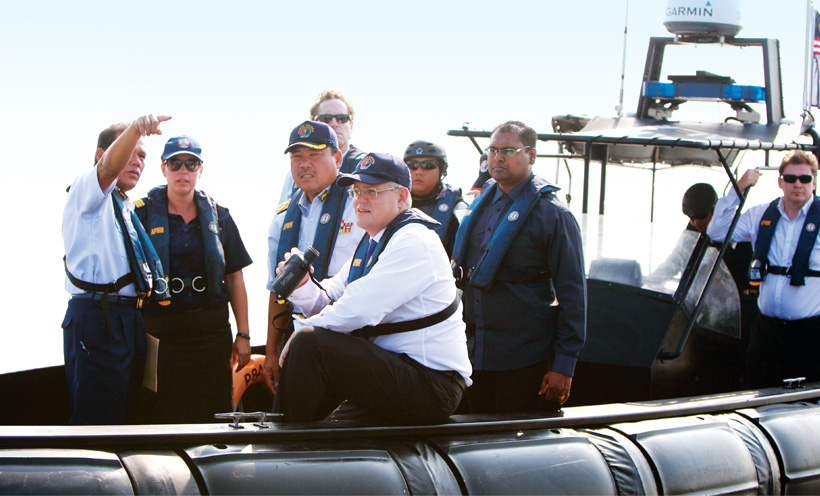
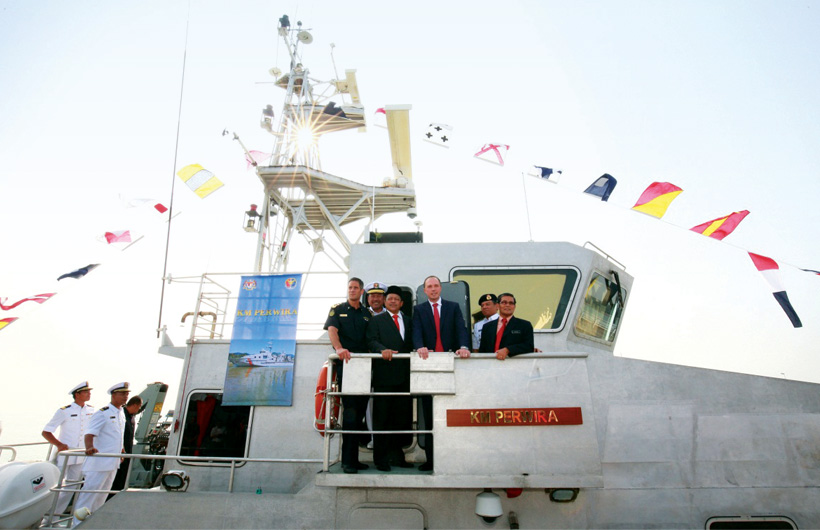
Today, Australia and Malaysia work closely with the region on a range of increasingly complex challenges. For example, the Australian Federal Police (AFP) conduct a range of investigations and prosecutions courses and bilateral working groups designed to foster mutual understanding and the interoperability of police and other agencies in the region in preventing, detecting, and investigating transnational crime. Joint AFP–Royal Malaysian Police activities have led to the successful prosecution of drug trafficking and people smuggling syndicates operating between our two countries.
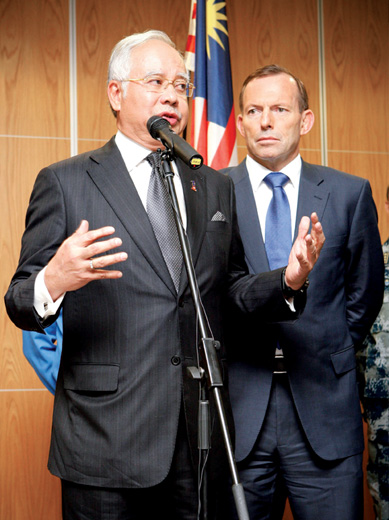
The MH370 and MH17 disasters
The Australia–Malaysia partnership entered unprecedented territory in 2014. On 8 March, Malaysia Airlines flight MH370 left Kuala Lumpur, bound for Beijing, with 239 passengers on board. The flight did not reach its destination and the search continues for its recovery. RAAF P3s were among the first aircraft to join the search, and when the Indian Ocean was identified as the likely location of the lost aircraft, Australia accepted Malaysia's request to lead the search effort. A Joint Agency Coordination Centre (JACC) was established for the purpose and continues to coordinate the largest and most complex search in aviation history.34 With the support of agencies including Australia's Transport Safety Bureau, Maritime Safety Authority, Geoscience Australia and the AFP, the JACC also facilitates international cooperation on the search effort. Malaysian experts participate in the day-to-day work of the JACC. Touring the MH370 search coordination centre at RAAF Base Pearce in April 2014, Malaysian Prime Minister Najib Razak thanked the 26 nations providing assistance and singled out Australia for its efforts in coordinating the search, describing it as a 'good friend'.35
A second disaster struck Malaysia Airlines on 17 July 2014 when flight MH17 carrying 298 passengers and crew—including 193 citizens from The Netherlands, 43 Malaysians and 38 who called Australia home—was shot down over eastern Ukraine en route from Amsterdam to Kuala Lumpur.36
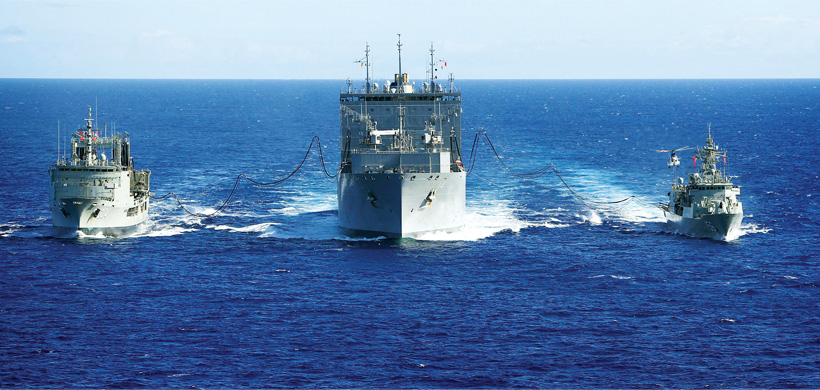
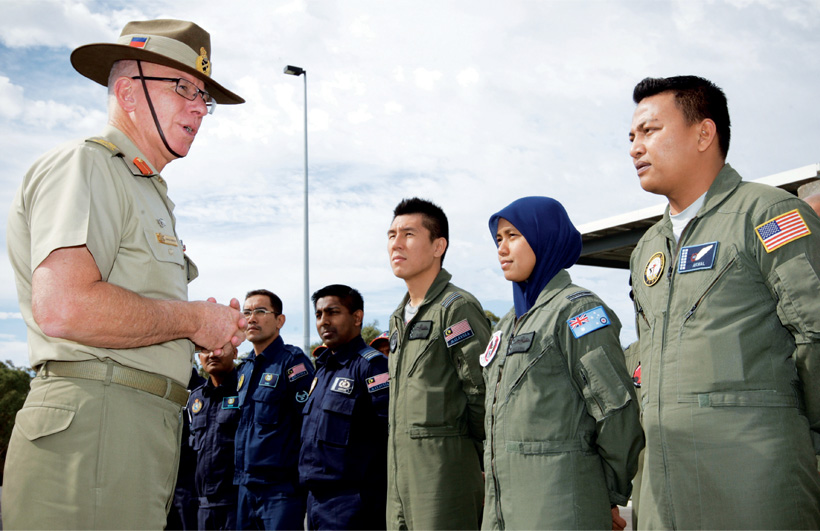
The incident, described as a 'criminal act', prompted global outrage and Australia, then a member of the UN Security Council (UNSC), immediately sought its support for a full, independent international investigation. This was achieved with the unanimous adoption of UNSC Resolution 2166, which called on all States to cooperate fully with crash recovery, retrieval and investigative efforts. The Australian Government committed a substantial team of DFAT, AFP, ADF and Australian Transport Safety Bureau investigators to the undertaking.37 Australia and Malaysia are both members of the Dutch-led team investigating the cause of the aircraft's downing, and both governments are committed to work together to bring the perpetrators to justice.
The MH370 and MH17 disasters have demonstrated that decades of close collaboration between Australia and Malaysia born of friendship can be mobilised purposefully when new challenges emerge. From 1955 to 2015, this spirit of partnership has come to symbolise our defence and security relationship. Over 60 years, that relationship has matured into one of mutual respect and trust, underpinned by a framework of cooperation that is in place to endure into the future.
My Story
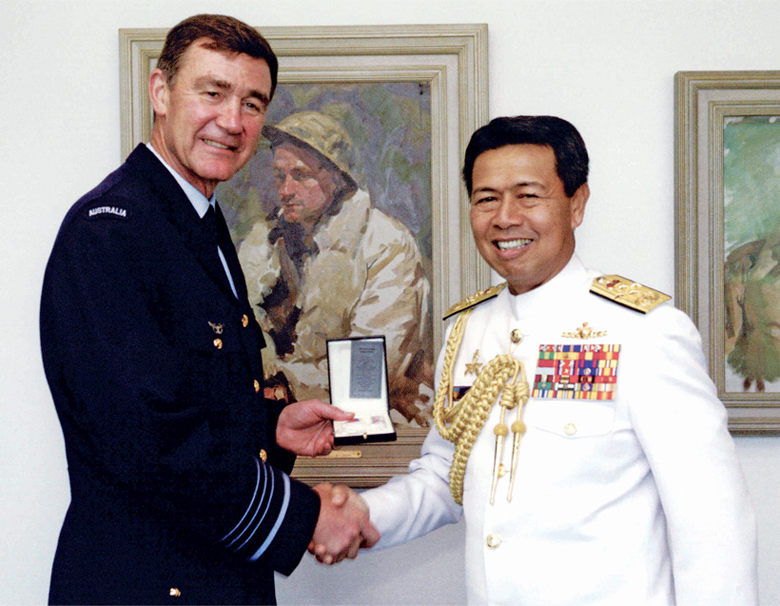
The Chief of the Australian Defence Force, Air Chief Marshal Angus Houston receiving the Pingat Jasa Malaysia on behalf of the Australian Defence Force, 2006.
I visited Malaysia in 1972 and 1974 as a young Air Force Officer and on both occasions enjoyed a leave break in Penang. In 1975-76 I flew with three delightful Malaysians who I instructed on the RAAF Pilots Course at Pearce in Western Australia.
After participating in significant defence engagement with Malaysia in the mid-1990s, I was very fortunate to be appointed Commander Integrated Air Defence System (IADS) in 1999. Living in Penang and working at Butterworth I was involved in all aspects of the Five Power Defence Arrangements (FPDA). There was a consensus for change and reform and I spent much of my time consulting in Kuala Lumpur and Singapore to develop and then produce a new policy framework for the FPDA. The policy known as Version 10 was endorsed by FPDA Ministers in 2000.
In my time as Chief of the Air Force and Chief of the Defence Force I was able to build on long-standing relationships and friendships which originated in the FPDA and in the bilateral military relationship. Accordingly, I maintained very constructive, trusting relationships with all the Malaysian Chiefs that I worked with to the betterment of our broader bilateral relationship. In particular, the support provided by Malaysia for our Asian Tsunami and P3 operations was outstanding. Similarly in 2006, after fighting broke out between elements of the military and the police in Timor-Leste, we were two of four countries which responded with military deployments working in coalition to assist the young nation successfully re-establish governance and law and order, thereby enhancing regional stability.
In more recent times I have been involved in the search for MH370 and the response to the shooting down of MH17. Again the long-standing relationship between our two countries has been enhanced at all levels at a time of considerable sorrow for both nations. The cooperation in all search activities in the Indian Ocean has been superb and the teamwork between the Australian Federal Police and the Royal Malaysian Police in Ukraine has also been excellent.
I have been privileged to have been involved in this wonderful Australia–Malaysia relationship for over 40 years in a wide variety of different roles. In my experience it has been mutually beneficial for both nations and is characterised at the personal level by deep friendships, constructive cooperation and significant achievement.